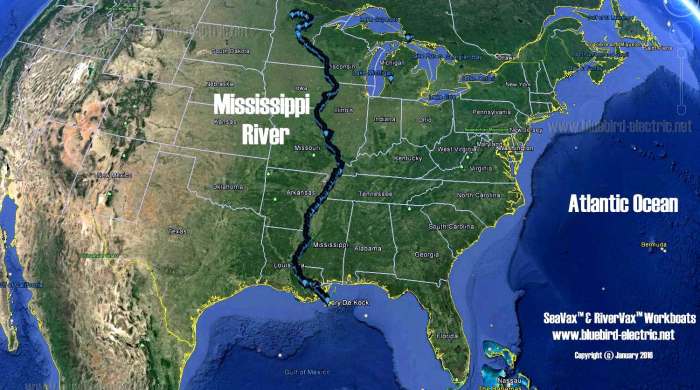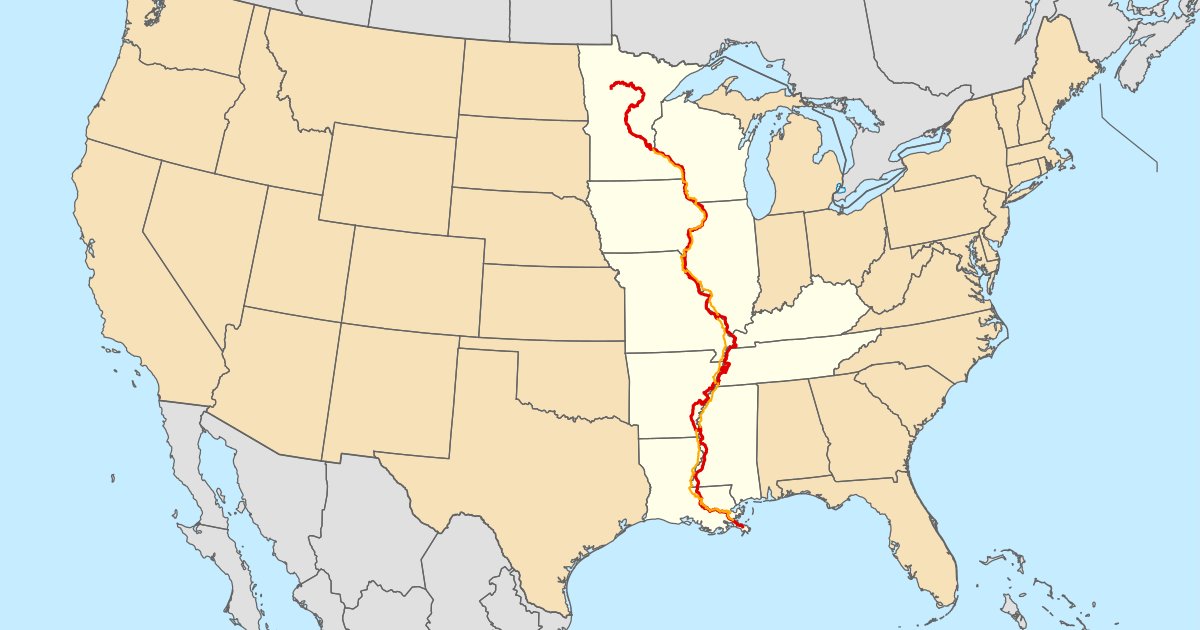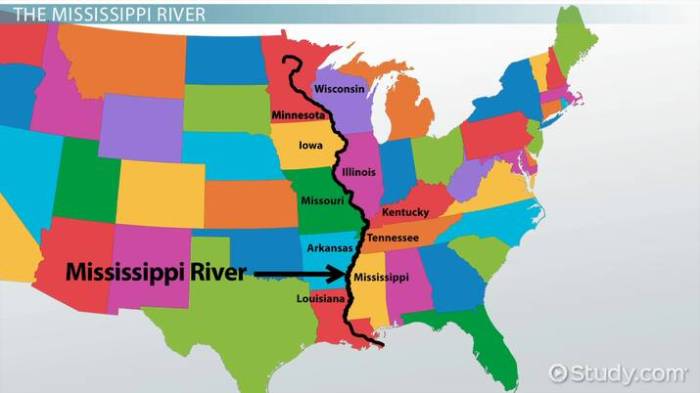Embark on a captivating journey with our “States East of the Mississippi River Quiz” and delve into the rich history, diverse cultures, and geographical significance of these vibrant regions. Our quiz will guide you through the landscapes, landmarks, and stories that define the eastern expanse of the Mississippi River, offering a comprehensive exploration of this captivating part of the United States.
Prepare to navigate a series of engaging questions that test your knowledge of state capitals, unique characteristics, and the profound impact of the Mississippi River on the development and identity of these states. As you progress through the quiz, you’ll uncover fascinating insights and expand your understanding of the region’s geography, culture, and heritage.
Mississippi River Geography

The Mississippi River, the second-longest river in North America, is a vital geographical feature that has shaped the landscape and history of the United States. Originating in Lake Itasca in Minnesota, the river flows for 2,350 miles (3,780 kilometers) through the heart of the continent, emptying into the Gulf of Mexico.
Along its course, it forms the boundary between the eastern and western United States and drains an area of over 1.2 million square miles (3.1 million square kilometers).
The Mississippi River is a major tributary to several other large rivers, including the Ohio, Missouri, and Arkansas Rivers. These tributaries, along with the Mississippi River’s own extensive network of distributaries and bayous, form a vast interconnected waterway system that has played a crucial role in the development of the American economy and transportation infrastructure.
States East of the Mississippi River
The following table lists the states that lie entirely or partially east of the Mississippi River:
| State | Capital | Population (2020) |
|---|---|---|
| Alabama | Montgomery | 4,903,185 |
| Connecticut | Hartford | 3,565,287 |
| Delaware | Dover | 973,764 |
| Florida | Tallahassee | 21,477,737 |
| Georgia | Atlanta | 10,711,908 |
| Illinois | Springfield | 12,671,821 |
| Indiana | Indianapolis | 6,785,528 |
| Kentucky | Frankfort | 4,505,836 |
| Louisiana | Baton Rouge | 4,657,757 |
| Maine | Augusta | 1,362,359 |
| Maryland | Annapolis | 6,177,224 |
| Massachusetts | Boston | 7,029,917 |
| Michigan | Lansing | 10,077,331 |
| Minnesota | Saint Paul | 5,706,494 |
| Mississippi | Jackson | 3,966,179 |
| Missouri | Jefferson City | 6,154,913 |
| New Hampshire | Concord | 1,377,529 |
| New Jersey | Trenton | 9,288,994 |
| New York | Albany | 20,201,249 |
| North Carolina | Raleigh | 10,439,388 |
| Ohio | Columbus | 11,799,448 |
| Pennsylvania | Harrisburg | 12,801,989 |
| South Carolina | Columbia | 5,118,425 |
| Tennessee | Nashville | 6,910,840 |
| Vermont | Montpelier | 623,989 |
| Virginia | Richmond | 8,631,393 |
| West Virginia | Charleston | 1,793,716 |
| Wisconsin | Madison | 5,893,718 |
Cultural and Economic Impacts: States East Of The Mississippi River Quiz

The Mississippi River has had a profound impact on the cultural and economic development of the states east of it. The river has been a major transportation route for centuries, connecting the interior of the country to the Atlantic coast and beyond.
It has also been a source of food, water, and power for the people who live along its banks.
The Mississippi River has played a key role in the development of agriculture in the eastern United States. The fertile soils of the Mississippi River Valley have made it one of the most productive agricultural regions in the world. The river has also been a major factor in the development of industry in the region.
The river’s transportation network has made it easy to move raw materials and finished goods to and from factories and markets.
The Mississippi River has also had a significant impact on the culture of the states east of it. The river has been a source of inspiration for artists, writers, and musicians. It has also been a major factor in the development of regional cuisines and traditions.
Environmental Considerations

The Mississippi River is a vital resource for the states east of it, but it also poses some environmental challenges. The river is a major source of pollution, including agricultural runoff, industrial waste, and sewage. The river is also vulnerable to flooding, which can cause widespread damage and loss of life.
There are a number of efforts underway to protect and restore the Mississippi River. These efforts include reducing pollution, restoring wetlands, and improving flood control. The goal of these efforts is to ensure that the Mississippi River continues to be a vital resource for the people who live along its banks.
FAQ Compilation
What is the largest state east of the Mississippi River?
Georgia
Which state east of the Mississippi River is known for its Great Smoky Mountains?
Tennessee
What is the capital of the state of Alabama?
Montgomery